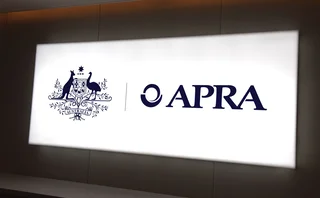
FBI Arrests Russian over Goldman Sachs trade secret theft
NEW YORK - The FBI has arrested a Russian computer programmer for allegedly stealing proprietary trading code from Goldman Sachs. The Feds believe that 39-year-old Russian emigre Sergey Aleynikov copied the valuable code, which Goldman uses to compute its automated trading positions, from his work desktop to a server in Germany. Aleynikov was arrested on July 3 as he stepped off a flight at Liberty international airport in Newark and was subsequently charged with "theft of trade secrets" with bail set at $750,000.
"Secret sauce is the phrase that a lot of people use," says Dan Hubscher, principal product marketing manager for capital markets at high-frequency trading and surveillance application platform Progress Apama. "It is valuable proprietary information. The large banks big in high-frequency trading are not using a common algorithm, it is highly customised and how they gain competitive advantage. Given the reaction, this must be a code core to their trading strategies."
Goldman says that if its competitors get hold of the 'black box' codes its ability to profit from the speed and efficiency of its system would be largely nullified. Goldman has spent millions developing the jealously guarded code and related programs, which offer competitive advantage through instantaneous, automated trading decisions. Aleynikov worked at Goldman between May 2007 and June 2009, earning $400,000 a year as a programmer to develop and improve the trading platform, before moving to start-up firm Teza Technologies in Chicago for a tripled salary and engaged in high-volume automated trading.
Aleynikov has released a statement professing his innocence, claiming he meant only to copy open source files, and only accidentally transferred the proprietary code, which he claims he did not pass on to any third party. Goldman was tipped off about the intellectual property spill when monitoring data uploads from its system via https. The bank recovered his desktop's command history from the Unix-based operating system he used to edit and maintain code on the trading platform and found Aleynikov had transferred a total of 32 megabytes of the code on least three occasions from his desktop to the file-sharing site svn.xp-dev.com, which is London-registered and uses a server in Bavaria, Germany.
"You have to look at who is accessing the code, where does it reside and what controls are in place," says Andre Edelbrock, chief executive at collaborative anti-fraud vendor Ethoca. "That type of code should not be allowed to leave the building. I had assumed that Goldman had some elaborate controls and monitoring of those systems."
Chicago-based hedge fund Citadel Investment Group is also suing a former executive and two other employees for violating their non-compete contractual clauses by setting up Teza Technologies - the firm Aleynikov joined on July 2. "This is a case of industrial espionage," says the Citadel complaint, filed in an Illinois state court. Princeton-educated Russian astrophysicist Mikhail Malyshev's quantitative trading unit made 40% returns for Citadel last year, despite Citadel's flagship portfolios losing 50% in the same period. The legal challenge named Malyshev, Jace Kohlmeier and Matthew Hinerfeld, claiming their nine-month non-compete clause runs until November, until when they are paid $30,000 a month by Citadel. Teza called the civil complaint "frivolous" and an attempt to harass its executives.
Only users who have a paid subscription or are part of a corporate subscription are able to print or copy content.
To access these options, along with all other subscription benefits, please contact info@risk.net or view our subscription options here: http://subscriptions.risk.net/subscribe
You are currently unable to print this content. Please contact info@risk.net to find out more.
You are currently unable to copy this content. Please contact info@risk.net to find out more.
Copyright Infopro Digital Limited. All rights reserved.
As outlined in our terms and conditions, https://www.infopro-digital.com/terms-and-conditions/subscriptions/ (point 2.4), printing is limited to a single copy.
If you would like to purchase additional rights please email info@risk.net
Copyright Infopro Digital Limited. All rights reserved.
You may share this content using our article tools. As outlined in our terms and conditions, https://www.infopro-digital.com/terms-and-conditions/subscriptions/ (clause 2.4), an Authorised User may only make one copy of the materials for their own personal use. You must also comply with the restrictions in clause 2.5.
If you would like to purchase additional rights please email info@risk.net
More on Regulation
Iosco pre-hedging review: more RFQs than answers
Latest proposals leave observers weighing new clampdown on pre-hedging
FCMs welcome CFTC margin rule ring-fencing clarification
Final rule on separate accounts replicates no-action relief as Republicans strip out gold plate
Stuck in the middle with EU: dealers clash over FRTB timing
Largest banks want Commission to delay implementation, but it’s not the legislator’s only option
Treasury clearing timeline ‘too aggressive’ says BofA rates head
Sifma gears up for extension talks with incoming SEC and Treasury officials
Rostin Behnam’s unfinished business
Next CFTC chair must finish the work Behnam started on crypto regulation and conflicts of interest
European Commission in ‘listening mode’ on potential FRTB changes
Delay or relief measures on the table after UK postpones start of Basel III to 2027
Australian FRTB projects slow down amid scheduling uncertainty
Market risk experts think Apra might soften NMRF regime to spur internal model adoption
EBA to address double-counting caused by new capital floor
Existing EU capital add-ons for model risk would duplicate new Basel floor on internal models







